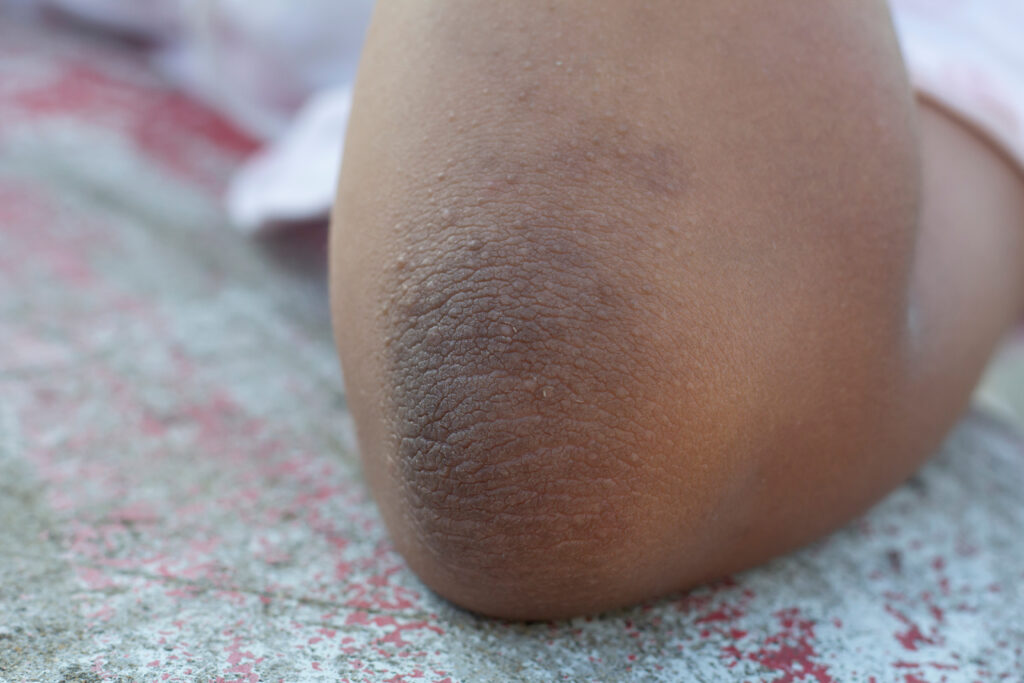Pampering and Prevention of Ashy Skin

If you have ashy skin, you know how irritating this skin condition is and how it is inconvenient but uncomfortable when ignored. Understanding what causes ashy skin can help take measures to prevent it (or minimize the symptoms), and there are treatment options that you can try for relief! Licensed dermatologists have experience treating patients with ashy skin. If you suffer from severe symptoms, it is best to visit a local dermatologist to get the perfect treatment and fastest results!
How Ashy Skin Got Its Name
Although this may seem obvious, ashy skin got its name because the dry patches turn greyish and look like the color of ashes. Ashy skin is dry to the touch and ends up most commonly on elbows and knees. Ashy skin is cracked skin that can catch on clothes and make individuals self-conscious about wearing clothes that expose their ashy skin areas.
The good news about ashy skin is that it is highly treatable!
Factors Known to Cause Ashy Skin
Multiple factors are known to cause ashy skin. It is unreasonable to ask people to change everything in their environment to address it, but knowing the causes makes people aware. It can help individuals make choices to minimize the things in their lives that are known to cause ashy skin.
Things Beyond Our Control When It Comes to Ashy Skin
The number one factor experienced dermatologists will tell their clients is that their environment significantly affects their ashy skin condition. Some environmental factors can be changed, and others can’t. Where you live, the weather can cause ashy skin, and nobody expects someone to move to a new part of the nation for better skin. Extreme weather, hot or cold, is a well-known culprit. Another factor that can make the skin turn ashy is age; there is nothing anybody can do about that! Thinning skin, familiar to those seeing the signs of aging on their skin, does not produce as much sebum, which keeps skin moisturized from the inside.
Things Within Our Control to Help Ashy Skin Symptoms
Water can also be a factor that causes ashy skin. You have heard it repeatedly – don’t take too hot of showers or sit and soak in it for too long. Although it may be tempting to steam up the bathroom and let the water pour over you for ten minutes, this is not doing your skin any favors. Water may come from a well or the city, which is not something you can control, but you can choose the temperature and length of time you spend in the water. You have heard the term “hard water,” which means the water contains hard minerals that can be rough on the skin.
The products you use on your skin may also intensify your ashy skin symptoms. If you can, write down the products you use, and play with removing some, trying new ones, and reintroducing them slowly to see if it helps your skin. Even if something promises to be moisturizing, the ingredients may not react well with your skin type, which can worsen things. Avoid products with dyes, formaldehyde, silicone, and parabens – these are too harsh for any skin type! You can always visit a local dermatologist, who will provide an accurate skin assessment and get you on track to healing your ashy skin.
Chronic ashy skin may be tied to other conditions like psoriasis and eczema, which a professional dermatologist must treat. They are highly trained in this field and know how to get the results you seek.
What Products and Treatments Are Best for Ashy Skin?
When trying home treatments for ashy skin, look for products that contain natural ingredients. Some examples are aloe vera (not the one with alcohol), shea butter, argan or olive oil, colloidal oatmeal, and calendula. All these ingredients are safe for most skin types and can ease the symptoms of ashy skin. Safe and organic products are your best bet when trying something new. If you try these products at home and don’t get the desired results, contact a reputable dermatologist.
Other things you can do to help your skin stay hydrated are to drink plenty of water and run a humidifier at night. A humidifier can be a skin saver in extremely hot or cold weather since you are usually inside with the air conditioner or heater running and sucking the moisture out of the air.
If you live or work in Atlanta, Buckhead Dermatology is accepting new patients, and Dr. Sherrie Straughn is exceptional at treating patients suffering from ashy skin. You deserve to be comfortable in your skin, regardless of skin color, age, or skin type. Dr. Straughn remains the top-rated dermatologist in Atlanta and can help you overcome your skincare concerns. Call today to schedule a consultation!
